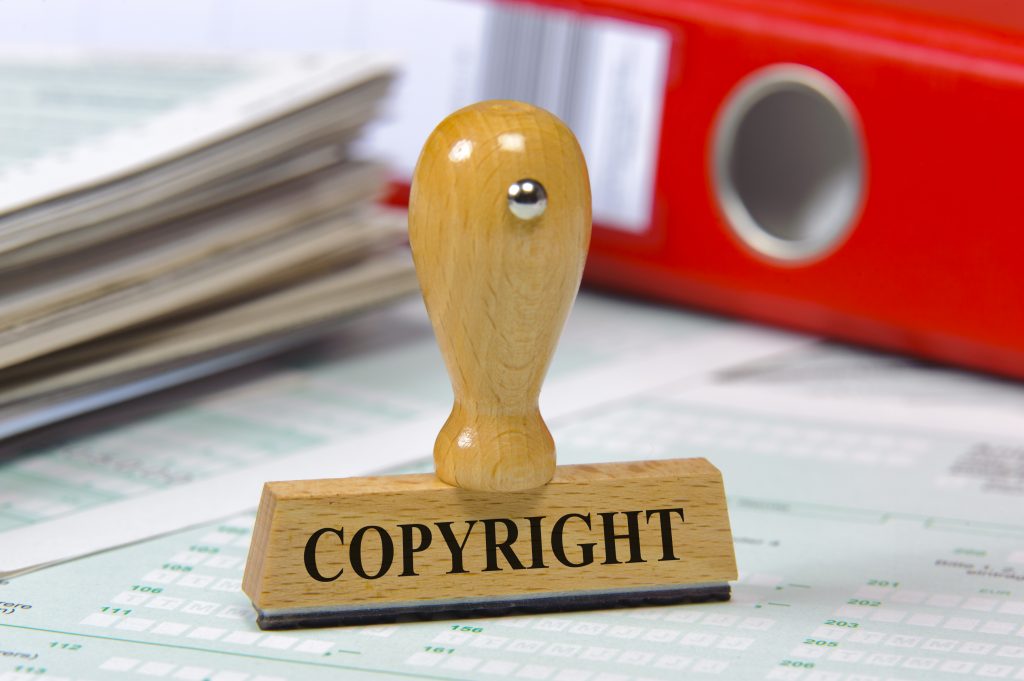“The letter repeatedly reiterated that the Office and Library are exploring a ‘mix of approaches to modernization,’ and that the OCIO ‘prefers to have a mixed set of staff on large, mission-focused efforts” in order to ensure program continuity and compliance.’”
 In August, amid growing concern that the U.S. Copyright Office has become antiquated and out of touch with the needs of modern users, Senator Thom Tillis sent a letter to Librarian of Congress Dr. Carla Hayden and Register of Copyrights Karyn Temple asking them to answer a number of questions relating to the timeline for their efforts to modernize the Copyright Office. Hayden and Temple submitted their responses Monday, noting that the modernization effort is “one of the most significant operational undertakings the Library and Copyright Office face in the near term.”
In August, amid growing concern that the U.S. Copyright Office has become antiquated and out of touch with the needs of modern users, Senator Thom Tillis sent a letter to Librarian of Congress Dr. Carla Hayden and Register of Copyrights Karyn Temple asking them to answer a number of questions relating to the timeline for their efforts to modernize the Copyright Office. Hayden and Temple submitted their responses Monday, noting that the modernization effort is “one of the most significant operational undertakings the Library and Copyright Office face in the near term.”
Underscoring the Challenge
The Copyright Office established the Copyright Modernization Office in 2018 to serve as a dedicated resource for modernization efforts. In testimony to the Senate IP Subcommittee earlier this year, Temple said the Office has managed to reduce average pendency times by 40% within the last two years and to completely eliminate the backlog of workable claims. She also testified that the average processing time for claims in correspondence was five months while online claims not involving written correspondence were being processed in an average of four months.
Despite these initial successes, funding for modernization will total nearly $100 million, including $12.1 million per year over five years for IT development and $5 million per year over seven years to digitize historic public records and make them searchable. Fiscal year 2019 was the first year that the agency received funding dedicated to modernization.
In their letter to Tillis, Hayden and Temple explained that, while efforts are already underway, including the expected launch of a limited-pilot version of the new Copyright Recordation system by Spring of 2020, modernization “remains an ambitious and technologically sophisticated undertaking.” For that reason, the Office is focusing on the long term, rather than merely adapting new technology to existing systems in the short term, said Hayden and Temple. “The Copyright Office and Library must create a system that is able to accommodate possible future legal responsibilities or structural changes for the Office that Congress deems necessary.”
Getting Flexible
In response to Tillis’ first question, “What steps are the Library of Congress and the Copyright Office taking to support a more advanced, agile and flexible approach to IT modernization?” Hayden and Temple provided three bullet points:
- “[The Enterprise Copyright System] has been envisioned from the ground-up as a series of interconnected applications and services instead of a traditional, monolithic IT system, which allows for flexible development.
- The system is being architected to minimize traditional data and other IT infrastructure needs, instead focusing on a scalable cloud and mobile technology.
- Copyright IT modernization is being conducted in a modern, iterative approach, with the [Office of the Chief Information Officer] technical experts and Copyright office subject-matter experts serving together on closely integrated project teams.”
A Mixed Approach to Staffing
However, Hayden and Temple seemed hesitant to answer Tillis’ several questions about opening the modernization process up more widely to outside contractors in the affirmative, indicating instead that they prefer a mixed approach. The letter repeatedly reiterated that the Office and Library are exploring a “mix of approaches to modernization, including “adapting flexible practices via Library, Copyright Office, and possibly General Services Administration (GSA) managed contracts, as well as building significant in-house development staffing.”
The letter explained that the OCIO “prefers to have a mixed set of staff on large, mission-focused efforts” in order to ensure program continuity and compliance.
“As the business owner, the Copyright Office is responsible for defining the business requirements that the ECS must accomplish…. Ultimately, the choice between contract development and federal staff development is a technical decision that should have no effect on the development effort,” the letter added.
Registration Pilot
Hayden and Temple also said they would consider Tillis’ question regarding the feasibility of implementing a registration pilot program within 8-12 weeks in order to collect real-time data on what is working and what isn’t. However, the Librarian and Register noted that such a move would require regulatory updates and public input via the notice-and-comment rulemaking process, making the 8-12 week timeline “highly unlikely.”
Nonetheless, consideration of such pilots “is critical…to ensuring that a modernized Registration system fully supports the unique needs of the copyright community and the Copyright Office,” concluded the letter.

![[IPWatchdog Logo]](https://ipwatchdog.com/wp-content/themes/IPWatchdog%20-%202023/assets/images/temp/logo-small@2x.png)

![[[Advertisement]]](https://ipwatchdog.com/wp-content/uploads/2023/01/2021-Patent-Practice-on-Demand-1.png)
![[Advertisement]](https://ipwatchdog.com/wp-content/uploads/2024/04/Artificial-Intelligence-2024-REPLAY-sidebar-700x500-corrected.jpg)
![[Advertisement]](https://ipwatchdog.com/wp-content/uploads/2024/04/Patent-Litigation-Masters-2024-sidebar-700x500-1.jpg)

![[Advertisement]](https://ipwatchdog.com/wp-content/uploads/2021/12/WEBINAR-336-x-280-px.png)
![[Advertisement]](https://ipwatchdog.com/wp-content/uploads/2021/12/2021-Patent-Practice-on-Demand-recorded-Feb-2021-336-x-280.jpg)
![[Advertisement]](https://ipwatchdog.com/wp-content/uploads/2021/12/Ad-4-The-Invent-Patent-System™.png)






Join the Discussion
No comments yet.